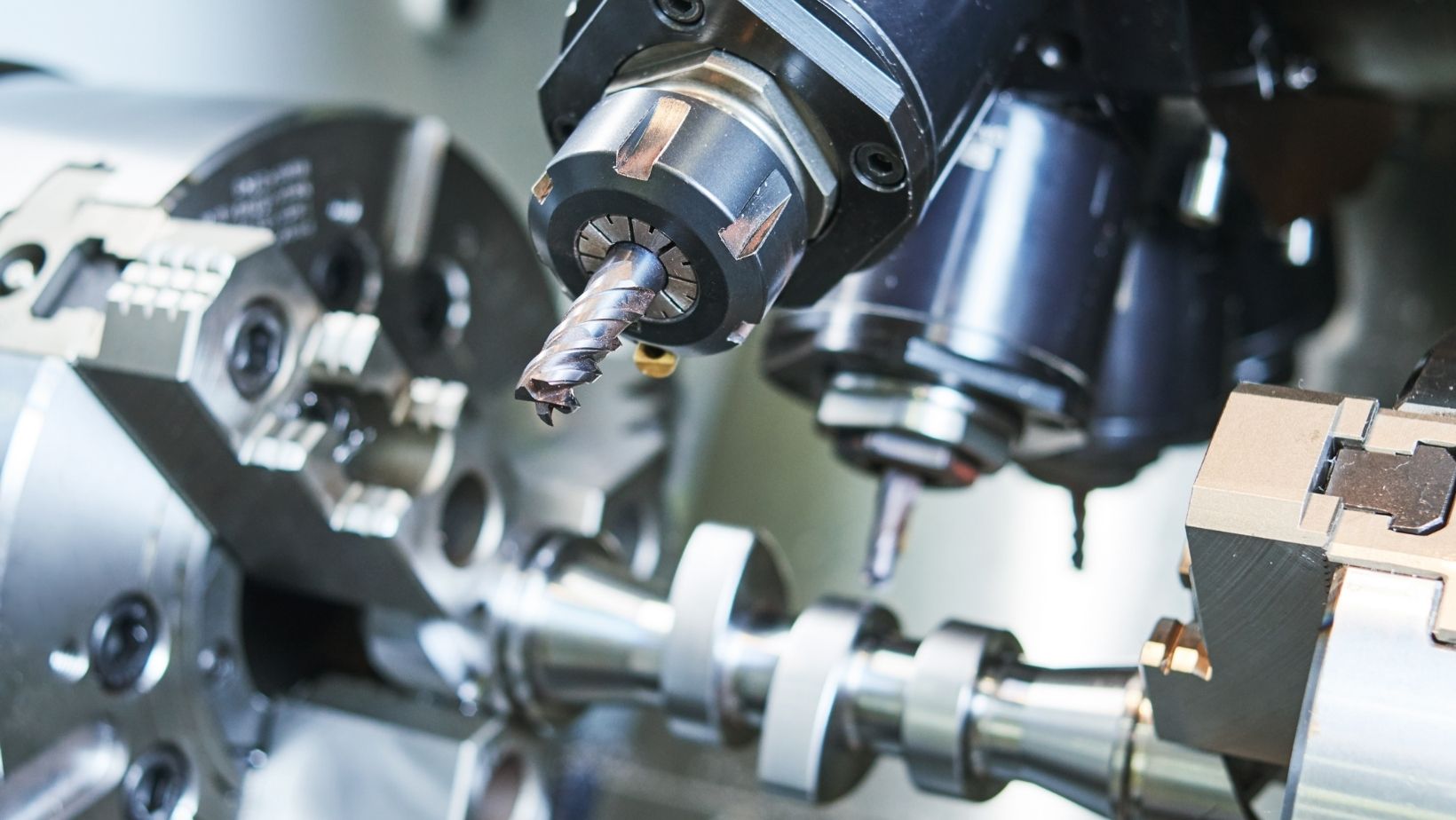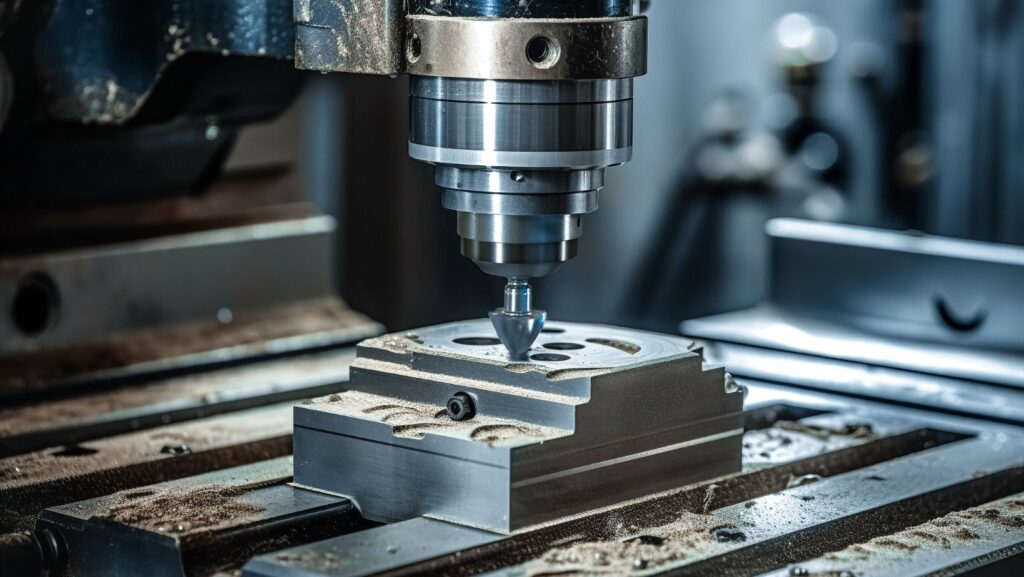CNC machining has revolutionized the manufacturing industry by allowing precise, repeatable, and complex parts to be produced efficiently. Among the various materials available for CNC machining, plastics have emerged as an increasingly popular choice due to their versatility, durability, and cost-effectiveness. When it comes to plastic CNC machining services, selecting the right plastic material is crucial to ensure the success of any project. This article explores the key considerations for choosing the best plastic materials for CNC machining projects and offers insights to help manufacturers and engineers make informed decisions.
Understanding Plastic CNC Machining Services
Plastic CNC machining services involve the use of computer-controlled machines to cut, shape, and fabricate plastic materials into precise components. Unlike metal machining, plastics offer a unique set of properties such as light weight, chemical resistance, electrical insulation, and ease of fabrication. These advantages make plastics ideal for applications in industries ranging from aerospace to medical devices, electronics, automotive, and consumer products.
However, the variety of plastics available can be overwhelming. Each type of plastic has its own mechanical properties, machinability, thermal resistance, and cost implications. Knowing how to match a plastic material’s characteristics with the project’s requirements is essential for quality outcomes and optimal performance.
Key Factors to Consider When Selecting Plastic Materials
Before diving into specific plastic types, it is important to understand the core factors that influence material selection for CNC machining projects:
- Mechanical Properties
Strength, toughness, stiffness, and wear resistance are vital mechanical properties that dictate how a plastic part will perform under stress. Projects that demand high durability or load-bearing capacity will require materials with higher tensile strength and impact resistance.
- Thermal Properties
The operating temperature range of the final part matters significantly. Some plastics can withstand high temperatures without deforming, while others may soften or melt. Heat resistance and thermal expansion should be considered especially for parts exposed to heat or temperature fluctuations.
- Chemical Resistance
Many plastic parts are used in environments where exposure to chemicals, solvents, or moisture is common. Selecting plastics with appropriate chemical resistance ensures longevity and prevents degradation.
- Electrical Insulation
For electrical or electronic applications, plastics with excellent insulating properties are preferred to prevent short circuits and ensure safety.
- Machinability
Not all plastics machines equally well. Some plastics can be brittle and prone to cracking, while others produce excessive chips or melting during machining. A machinable plastic reduces tool wear, lowers production costs, and achieves finer finishes.
- Cost and Availability
Budget constraints and material availability can influence the choice. While some engineering plastics offer exceptional properties, they may be cost-prohibitive for certain projects.
- Aesthetic and Surface Finish
For visible parts, surface finish and color options matter. Some plastics can be polished to a glossy finish, while others accept paints or coatings well.
Common Plastic Materials Used in CNC Machining

The following plastics are frequently chosen in plastic CNC machining services due to their balanced properties and widespread applications:
1. ABS (Acrylonitrile Butadiene Styrene)
ABS is a versatile thermoplastic known for its toughness and impact resistance. It machines well, producing smooth finishes with minimal tool wear. ABS is commonly used for prototyping, automotive parts, consumer goods, and enclosures.
Pros of ABS include its affordability and good dimensional stability. It also accepts paints and adhesives easily, which is beneficial for finishing. However, ABS has limited chemical resistance, especially to strong acids and solvents, and moderate heat resistance.
2. Delrin (Acetal)
Delrin is a high-performance engineering plastic praised for its excellent strength, stiffness, and low friction. It is ideal for precision parts like gears, bearings, and bushings. Delrin machines cleanly and produces sharp edges and tight tolerances.
It also has excellent fatigue resistance and dimensional stability under varying temperatures. However, it has moderate chemical resistance and can absorb moisture, which might affect some applications.
3. Nylon (Polyamide)
Nylon is a strong and flexible plastic with excellent abrasion resistance and toughness. It performs well in parts requiring wear resistance such as gears, rollers, and structural components. Nylon is also resistant to many chemicals and has good fatigue resistance.
However, Nylon is hygroscopic, meaning it absorbs moisture from the air, which can affect its dimensional stability. Proper drying before machining and use in controlled environments is necessary to ensure quality.
4. Polycarbonate (PC)
Polycarbonate is known for its exceptional impact resistance and transparency. It is used for applications requiring high toughness, such as protective covers, lenses, and electronic housings. Polycarbonate machines well but requires sharp tools due to its toughness.
Its heat resistance is moderate, and it can be sensitive to certain solvents and UV exposure, which may cause yellowing over time.
5. PTFE (Teflon)
PTFE is valued for its outstanding chemical resistance and very low coefficient of friction. It is used for seals, gaskets, and parts exposed to corrosive environments. PTFE machines differently from most plastics and requires specialized tools and techniques to avoid melting or tearing.
Due to its softness, PTFE parts can deform under load and have lower mechanical strength than many other plastics.
6. PEEK (Polyether Ether Ketone)
PEEK is a high-performance engineering plastic with excellent mechanical, thermal, and chemical resistance. It is used in demanding industries such as aerospace, medical implants, and electronics. PEEK can withstand continuous use at elevated temperatures and has excellent wear resistance.
Due to its high cost, PEEK is reserved for critical applications where performance outweighs budget considerations.
7. Acrylic (PMMA)
Acrylic is appreciated for its clarity and aesthetic qualities. It machines well and is often used in displays, signage, and decorative parts. Acrylic is rigid but brittle compared to other plastics and can crack under impact.
It has good weather resistance but is sensitive to some solvents.
How to Match Plastic Material to Application Needs
Choosing the right plastic for CNC machining projects begins with understanding the end-use requirements of the part. Consider the environment in which the part will operate, mechanical stresses, exposure to chemicals or heat, and any regulatory or safety standards.
For example, a prototype enclosure that requires quick production and good appearance may benefit from ABS due to its cost-effectiveness and machinability. On the other hand, a bearing component needing low friction and wear resistance may be better suited for Delrin or Nylon.
Parts subjected to high temperatures or chemical exposure will benefit from engineering plastics like PEEK or PTFE, despite their higher cost. In applications where electrical insulation is critical, materials such as ABS or Polycarbonate can be excellent choices.
Benefits of Using Plastic CNC Machining Services
Plastic CNC machining services offer several advantages over other fabrication methods like injection molding or 3D printing:
- Precision and Repeatability: CNC machines provide tight tolerances and consistent quality, essential for functional parts.
- Material Variety: CNC machining can work with a broad range of plastics, including those not suitable for molding.
- Prototyping and Low Volume: Ideal for prototypes and small batches without the tooling costs of molding.
- Fast Turnaround: CNC machining enables rapid production of parts with complex geometries.
- Customization: Easy to modify designs and produce custom parts to meet specific needs.
By choosing the appropriate plastic material and leveraging expert CNC machining services, manufacturers can ensure reliable performance and cost-efficiency.
Challenges and Tips for Successful Plastic CNC Machining
Machining plastics offers many advantages but also comes with unique challenges that require careful attention. Plastics are thermally sensitive, meaning they can melt or deform if cutting temperatures get too high, so optimizing speeds and cooling is essential. The chips produced during machining tend to be stringy or sticky, which can clog tools and machines if not managed properly. Additionally, some plastics absorb moisture or warp, making it difficult to maintain tight tolerances without a controlled environment. Tool wear is another concern, as certain plastics are abrasive and can quickly dull cutting tools, requiring specialized tooling to maintain precision.
To overcome these challenges and optimize plastic CNC machining projects, several best practices help achieve the best results. Testing materials under expected conditions ensures the plastic performs as needed. Close communication with machining service providers helps specify tolerances, finishes, and special requirements clearly. Designing parts with the unique behaviors of plastics in mind improves manufacturability and durability. Using sharp, appropriate tools made for plastic materials enhances cutting quality. Proper cooling and chip removal prevent overheating and surface damage, maintaining part integrity. Finally, planning for post-machining finishes such as polishing or coating can improve both the look and function of the final product.
Conclusion
Selecting the best plastic materials for CNC machining projects is a foundational step that influences the quality, performance, and cost of the final product. Understanding the properties of different plastics and how they align with application requirements helps engineers and manufacturers make smart material choices.
Plastic CNC machining services open up possibilities to create complex, precise, and functional parts across diverse industries. By carefully considering mechanical, thermal, chemical, and aesthetic factors, you can leverage the strengths of plastic materials to produce parts that meet or exceed expectations.
Whether you need a tough, impact-resistant component like ABS, a low-friction bearing material like Delrin, or a high-performance solution like PEEK, the right plastic combined with expert CNC machining can transform your project into a success. As plastic CNC machining services continue to evolve, staying informed about material options and machining techniques will keep your manufacturing capabilities at the forefront.
